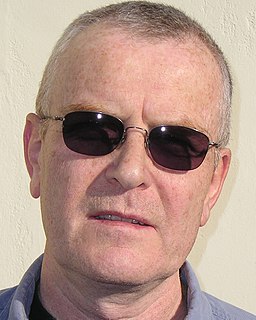A Quote by Natan Sharansky
As soon as people become a little less fearful, they will also begin demanding more freedom.
Related Quotes
A little more kindness, A little less speed, A little more giving, A little less greed, A little more smile, A little less frown, A little less kicking, A man while he's down, A little more "We", A little less "I", A little more laugh, A little less cry, A little more flowers, On the pathway of life, And fewer on graves, At the end of the strife.
A society that puts equality - in the sense of equality of outcome - ahead of freedom will end up with neither equality or freedom. The use of force to achieve equality will destroy freedom. On the other hand, a society that puts freedom first will, as a happy by-product, end up with both greater freedom and greater equality. Freedom means diversity but also mobility. It preserves the opportunity for today's less well off to become tomorrow's rich, and in the process, enables almost everyone, from top to bottom, to enjoy a richer and fuller life.
Try vegetarianism and you will be surprised: meditation becomes far easier. Love becomes more subtle, loses its grossness — becomes more sensitive but less sensuous, becomes more prayerful and less sexual. And your body also starts taking on a different vibe. You become more graceful, softer, more feminine, less aggressive, more receptive.
If a [democratic] society displays less brilliance than an aristocracy, there will also be less wretchedness; pleasures will be less outrageous and wellbeing will be shared by all; the sciences will be on a smaller scale but ignorance will be less common; opinions will be less vigorous and habits gentler; you will notice more vices and fewer crimes.
If you look back on the history of the 20th century, the 19th century or even to the ancien régime of the 18th, you will see that first people rebelled against the order of the things because of lack of liberty, and demanded more freedom. And when they got more freedom, they got frightened, and they desired more security for a change. After a while, they started complaining, although more secure, they also become more dependent and rule-bound.
And I can see that everything about this God has been purposely designed to poison our experience of life on earth, not to enhance it, to keep us fearful, to suppress knowledge, to curtail freedom and creativity, and to celebrate death. It's nothing less than the sanctified dumbing-down of the human race. And demanding respect for it is frankly an insult that deserves to be repaid with considerable interest.
The more administrative machinery we construct, be it the most modern, the less place there is for the Spirit, the less place there is for the Lord, and the less freedom there is. It is my opinion that we ought to begin an unsparing examination of conscience on this point at all levels in the Church.
The important thing is not so much that every child should be taught, as that every child should have the opportunity of teaching itself. What does it matter if the pupil know a little more or a little less? A boy who leaves school knowing much, but hating his lessons, will soon have forgotten all he ever learned; while another who had acquired a thirst for knowledge, even if he had learned little, would soon teach himself more than the first ever knew.
Rather than becoming more relaxed, you start pulling down the shades and locking the door. When you do go out, you find the experience more and more unsettling and disagreeable. You become touchier, more fearful, more irritable than ever. The more you try to get it your way, the less you feel at home.
As soon as any one is near me, his personality disturbs my self-complacency and restricts my freedom. In twenty-four hours I begin to hate the best of men: one because he's too long over his dinner; another because he has a cold and keeps on blowing his nose. I become hostile to people the moment they come close to me. But it has always happened that the more I detest men individually the more ardent becomes my love for humanity.
Since true listening involves a setting aside of the self, it also temporarily involves a total acceptance of the others. Sensing this acceptance, the speaker will feel less and less vulnerable, and more and more inclined to open up the inner recesses of his or her mind to the listener. As this happens, speaker and listener begin to appreciate each other more and more, and the dance of love is begun again.





































